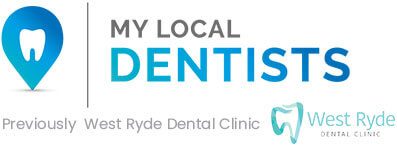How to Fix a Broken Tooth: A Comprehensive Guide

Imagine the shock and discomfort of biting into a hard apple only to discover you’ve broken or chipped a tooth.
These dental emergencies are far from rare and can occur at the least expected moments, be it a casual brunch or during a high-intensity sports game.
When faced with a broken tooth, timely care is crucial to prevent further damage and to mitigate unbearable pain.
If the damaged tooth is left untreated, it can lead to complications like tooth decay, infection, or even loss of the affected tooth.
So, what’s on the agenda? In this comprehensive guide, we’ll explore various types of tooth damage, from slightly chipped to more severe fractured teeth, and delve into the professional treatments like dental bonding, root canal treatment, dental crowns, and tooth extraction.
We’ve got you covered, whether for cracked tooth repair or understanding when dental implants are necessary. Plus, we’ll look at preventative measures that can save you from future dental emergencies.
Ready to preserve that smile? Let’s get started.
Types of Tooth Damage
When it comes to tooth damage, not all harm is created equal.
In the dental world, the spectrum of damage ranges from the slightly chipped tooth to the completely knocked-out pearly white.
The nature and severity of the damage often dictate the course of treatment, from a simple dental bonding procedure to a more complex root canal treatment or even a surgical tooth extraction.
Let’s delve into the nuances of each type of tooth damage.
Chipped Tooth
A chipped tooth is a common outcome for those who indulge in hard foods or have the misfortune of a minor accident.
Generally considered the least severe, a chipped tooth usually involves minor enamel loss.
However, don’t underestimate it; ignoring it can lead to more extensive damage. Dental bonding using tooth-coloured composite resin is often the remedy for repairing this damage.
Cracked Tooth
A cracked tooth, similar to a chipped tooth, is usually more severe and can extend vertically from the chewing surface towards the root.
This damage risks exposing the sensitive inner pulp, potentially leading to infection and requiring a root canal or a dental crown for repair.
Failure to address a cracked tooth could culminate in further injury and complications, often requiring more invasive procedures.
Fractured Tooth
When discussing a fractured tooth, we’re entering a realm where immediate dental attention is imperative.
A fractured tooth indicates that the damage has reached the tooth’s inner layers, often causing significant pain.
Dental crowns or root canal treatment are the standard solutions, but in some cases, tooth extraction might be unavoidable.
Knocked-Out Tooth
 Whether the result of a high-impact collision in sports or a nasty fall, a knocked-out tooth is as severe as it gets.
Whether the result of a high-impact collision in sports or a nasty fall, a knocked-out tooth is as severe as it gets.
Immediate action is crucial. Preserving the original tooth in milk or saline solution while you dash to the dentist’s office could increase the chances of saving the natural tooth.
However, if reattachment is not feasible, dental implants become a viable long-term solution.
To summarise, whether you’re dealing with a chipped or broken tooth or facing a dental emergency like a knocked-out tooth, the severity of the issue varies.
Immediate treatment is always recommended to prevent tooth decay and further damage.
Remember, each type of tooth damage demands a unique treatment, ranging from dental fillings for minor chipping to surgical procedures for more severe cases.
Common Causes of a Broken Tooth and How to Navigate the Dental Labyrinth
We’ve all been there. One moment, you’re enjoying a night out with friends or biting into a crunchy apple, and then “crack!”—something doesn’t feel right. You touch your mouth and realise a piece of your tooth is missing. Welcome to the world of broken teeth, a dental emergency that’s more common than you might think.
Accidents/Falls
Clumsy stumbles and accidental falls are often to blame when an entire tooth or a piece thereof goes AWOL.
Whether you’ve tripped over a misplaced toy or collided with someone during a pickup game of basketball, these incidents can result in anything from a slightly chipped tooth to a more severe fractured tooth.
Immediate action is crucial. Rinse your mouth with warm water and use a gauze pad to control bleeding.
Rush to the dentist’s office as soon as possible for a proper tooth diagnosis and treatment plan, which may range from dental bonding to surgical procedures like tooth extraction.
Biting on Hard Foods
Think twice before chowing down on that hard candy or ice cube. Biting on hard foods is a leading cause of chipped teeth and can even lead to more extensive tooth damage.
Opt for soft foods and go to the dentist for a quick repair, often involving dental filling material or a dental crown.
If left untreated, tooth decay can set in, potentially leading to root canal treatment or other invasive procedures.
Tooth Decay
 Ah, the dreaded term that sends shivers down the spine of many: tooth decay. Long-term neglect of oral hygiene can weaken your teeth, making them more susceptible to breakage.
Ah, the dreaded term that sends shivers down the spine of many: tooth decay. Long-term neglect of oral hygiene can weaken your teeth, making them more susceptible to breakage.
Dental procedures like root canals or the application of dental crowns can help save the remaining tooth structure, but prevention is always better than cure. Regular check-ups can catch these issues early, saving you time and discomfort in the long run.
Previous Dental Procedures
You’d think a dental procedure would lead you to oral nirvana. But alas, that’s not always the case.
Previous dental work, like old fillings and crowns, cover only a portion of your tooth and might not protect against further damage.
Sometimes, these treatments can make your teeth brittle, requiring subsequent dental interventions such as dental implants or veneers.
Symptoms of a Broken Tooth and How to Address Them
Life is full of ups and downs, and let’s face it! Some of them can harm our teeth.
For instance, a broken or chipped tooth is an inconvenience at best and a dental emergency at worst.
Let’s delve into the telltale symptoms of this issue and what your next steps should be. Shall we?
Pain: The Obvious Culprit
When it comes to a broken tooth, pain is often the first and most glaring symptom.
However, the extent of the discomfort can vary based on the severity of the break.
While a slightly chipped tooth may only present a mild irritation, a severely damaged tooth can send piercing pain through your mouth.
Here’s a word to the wise: don’t dismiss it. Even minimal pain can signify underlying issues like tooth decay or further damage that warrants immediate action.
Sensitivity: A Sign You Can’t Ignore
You’ve taken that first sip of a scalding cup of tea and ZING—your tooth protests vehemently.
Or perhaps the chill of an ice cream sends you wincing. Tooth sensitivity can occur when the break exposes the inner layers of your tooth, including the dentin and, sometimes, the nerve itself.
While dental bonding might offer a temporary fix, more serious interventions like root canal treatment or a dental crown may be necessary for severely affected teeth.
Sharp Edges: The Unseen But Felt
Here’s an interesting tidbit: the jagged edges of a broken tooth may not always be visible, but your tongue and cheek will sense their intrusive presence.
These edges can cause further injury, leading to cuts or ulcers. A quick application of dental wax may offer temporary relief, but a fractured tooth needs professional care.
Your dentist might use tooth-coloured composite resin to smooth over the rough spots or recommend more extensive treatments like dental implants for serious cases.
Side note: Dental Insurance Is Your Lifesaver
Dealing with a broken tooth often involves multiple visits to the dentist’s office for procedures ranging from dental bonding to surgical interventions.
Here’s where dental insurance comes in handy. Not only does it lessen the financial burden, it also ensures that you don’t put off necessary treatments due to cost concerns.
So, if you ever find yourself with a sudden pang of pain or acute sensitivity or notice sharp edges that irk your tongue and inner cheeks, it’s a call to action—time to take the steering wheel of your dental health into your own hands.
Even seemingly harmless symptoms could be harbingers of more significant issues like tooth decay or root canals.
Awareness of what these symptoms indicate allows for timely intervention and can save you a world of grief.
Navigating Treatment Options for a Damaged Tooth: From Dental Bonding to Implants
Dental Bonding: Quick and Economical
Dental bonding is a go-to option for minor flaws like a slightly chipped tooth.
It involves applying a tooth-coloured composite resin to the damaged area, set with a blue light.
Quick and relatively inexpensive, it lasts up to 10 years. However, it’s less durable than other options.
Veneers: The Cosmetic Facelift
Veneers offer a cosmetic procedure that fixes cracked teeth and fills gaps.
Thin shells of porcelain cover the front tooth, offering an aesthetic appeal. They’re costlier and typically last 10-15 years.
Dental Crowns: The Reinforcement
Ideal for a broken tooth that needs more than a superficial fix, crowns cover the entire tooth.
Their longevity is notable, often up to 15 years, but they can be a pricier option.
Root Canal: The Controversial Saviour
Root canals are inevitable if your broken or chipped tooth has led to an infection reaching the blood vessels. It’s a more invasive procedure that carries risks and is cost-intensive.
Tooth Extraction and Implants: The Last Resorts
Extraction is generally the last resort for irrevocably damaged teeth, followed by dental implants.
Implants offer a permanent solution but have a higher cost and surgical implications.
Depending on your unique situation, your dental treatment roadmap might be a single lane or a winding path. Discuss these options with your dentist to determine the most appropriate for you.
The Importance of Dental Insurance
Navigating through this dental labyrinth can be costly. This is where dental insurance becomes your best friend.
Depending on your policy, most treatments, from dental bonding to root canal treatment, could be partially or fully covered, easing the financial burden.
So, there you have it—common causes that can thrust you into dental emergencies.
Awareness and preventative measures are your first line of defence, but knowing what steps to take can make all the difference if you find yourself in a pickle.
Your teeth are vital to your overall health, and understanding how to protect them is paramount.
Conclusion
In summary, the type of dental procedure you’ll require hinges on the severity of your tooth damage.
From quick fixes like dental bonding for a slightly chipped tooth to more intensive treatments like root canals or dental implants, options abound.
But remember, there’s no one-size-fits-all when it comes to repairing damaged teeth.
The salient point here? Consulting a dental professional is non-negotiable for any tooth mishap—be it a fractured tooth, a chipped tooth, or something more severe. So, take preventative measures; after all, an ounce of prevention is worth a pound of cure.
Ready for a dental check-up? Schedule an appointment at My Local Dentists today and protect your precious pearly whites.
Note: Any surgical or invasive procedure carries risks. Before proceeding, you should seek a second opinion from an appropriately qualified health practitioner.
References
Chipped Tooth: Broken or Cracked Teeth Repair and Treatment https://www.dentaly.org/us/chipped-tooth-repair/
Repairing a Chipped or Broken Tooth https://www.webmd.com/oral-health/repairing-a-chipped-or-broken-tooth
